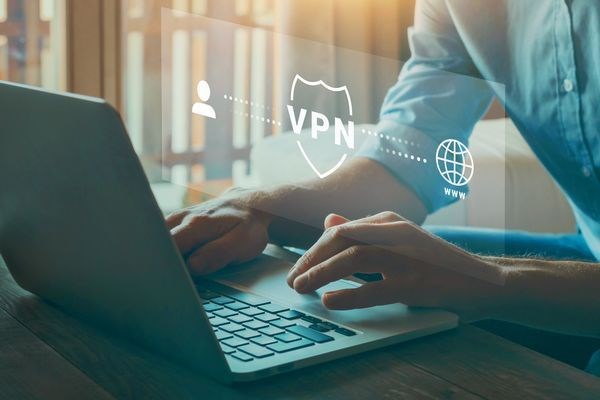VPNs also known as Virtual Private Networks which are very helpful in today’s world due to various benefits such as security. However, the reliance on the VPN alone can sometimes give a feeling of security by an individual or computer. There are new and developing threats, and even though a VPN can help protect your browsing activities, it cannot fully do the job. Some issues include DNS leaks that make users’ information vulnerable, malware attacks that have not been completely eliminated. In this blog, we discuss the potential limitations of your VPN and the reason why you need something more to stay protected online.
VPNs Don’t Protect Against Malware
VPNs protect your web traffic by using encryption but they do not prevent viruses or other dangerous software. Accidentally, merely getting into a phishing link or getting infected files to your computer can also produce a disastrous result. To achieve maximum security, users should accompany their VPN with a reliable anti-virus software. Security measures including firewalls, constant threats detection and malware are required safety measures to be implemented. Although, with the help of a VPN connection, a computer can keep away from ransomware or spyware, one has to understand that multiple layers of protection is the best approach to cyber security.
DNS Leaks Can Expose Your Activity
A VPN which is not well configured poses a lot of risks such as DNS leakage, whereby your browsing activities may be revealed to your ISP. You can be fully assured that your traffic is encrypted but the DNS requests are usually capable of going outside of the tunnel. To avoid this; something which can be done is using a VPN service that has DNS leakage protection or configure DNS yourself. One can check the reliability of its privacy through a DNS leak test tool. These controls, therefore, keep your privacy vulnerable even with the use of a VPN.
VPNs Can’t Stop Tracking Cookies
VPNs prevent revealing your IP address to others but do not eliminate the use of tracking cookies by advertisers and website owners. These cookies whose primary purpose is to form a rich database of your online behavior with the intended aim of placing advertisements. To this, one can use browser add-ons such as Privacy Badger or set strict anti-tracking options. This is true because a VPN can be used in conjunction with cookie-blocking tools to protect the client’s privacy. Otherwise, one's identity will remain compromised which impacts the reason for using a VPN in the first place.
No Protection Against Social Engineering
Social engineering is what scammers use to make users give away sensitive data. A VPN will not dismiss you for fake emails, fraudulent calls and phishing scams. Your defense is awareness and skepticism. Provide multi factor authentication (MFA) for requests and verifications before sharing more information. Securing your connection with a VPN means you are not completely invincible, but a human error is still possible.
VPNs May Slow Down Your Connection
Using a VPN to encrypt data can slow internet connection speeds particularly for servers that are far away. Stream, game and big download can be in jeopardy. Some VPNs offer performance optimized servers that are fast (but it's not guaranteed), but this is different from having a dedicated server. If security has to give up simply for the sake of usability, try split tunneling (sending only sensitive traffic over the VPN). The combination of speed and protection provides a smooth service without compromise when it comes to safety.
Conclusion
A VPN is a powerful tool for privacy but not a one stop security solution. It goes without saying that you should pair it up with antivirus software, DNS leak protection, anti-tracking tools and general cybersecurity awareness. There is no single technology to completely stop all the threats, security in layered way is important. Think about how you’ve utilized the Internet and extra protections, and know what the most recent potential threats are. With the right approach, you can make the internet safer for yourself other than a VPN allows.




Leave Comment